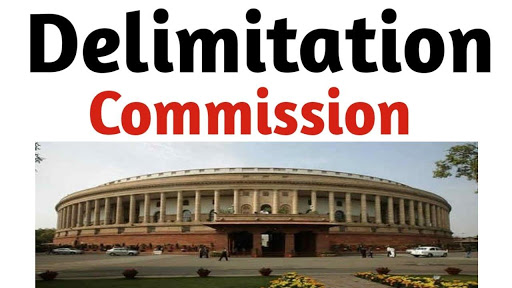Last year in August, the centre had abrogated the articles 370 and 35A of the Indian constitution in order to bifurcate of the state of J&K into union territories of Jammu and Kashmir and Ladakh. Though this issue was at the centre of national media limelight during the months of August and September, last year, another issue way more important was missed by most discussion forums and media-houses. It was the issue of delimitation of the territories for constituencies in the reorganized state. Under section 60 of the J&K Reorganisation Act of 2019, the number of seats in the legislative assembly of the UT of J&K is to be increased to 114 from 107(based on 2011 census data). This work of delimitation is to be carried out by delimitation commission or boundary commission formed under the Delimitation Act 2002.
The purpose of the delimitation has to be carried out with some needs specifically enunciated in the Delimitation Act of 2002. One of the requirements of the act is to ensure equal representation for all segments of population. It is also needed to fairly divide the areas geographically to provide equal chances to the citizens and ensure that no political party gets more leverage than others. On vote-One value is also needed to be followed by the work of delimitation. Under the Article 170, the states get divided into constituencies as per the Delimitation Act 2002. The current delimitation work needs to be carried out as per the census data of 2011. Delimitation commission which will carry out the task has a Retired Judge of Supreme Court as the chairperson, and the chief election commissioner and the state election commissioner as other members. The delimitation commission will also decide the number of seats to be given for scheduled castes and scheduled tribes.
At the national level as of 2009, out of the total 543 parliamentary constituencies, 499 constituencies were newly delimited. This had changed the territories of constituencies across the country including the Delhi NCR region, the Union territory of Puducherry, except for the states of Nagaland, Arunachal Pradesh, Manipur, Jharkhand, Assam and J&K. Chief Election commissioner of India had recently stated that the delimitation commission is very near to finalising an overall broad framework for the delimitation of territories in J&K. In this regard, it has been decided to bring in stakeholders like the political parties in the state to get inputs on the territorial demarcation decision by the delimitation commission. It needs to be ensured under the framework that geographically compact constituencies are formed, that there are no natural barriers within a constituency and that the lowest administrative unit in assimilated in a constituency.
The election commission expects that the delimitation in the newly formed Union territories of J&K and Ladakh (formed on October 31st, 2019) and in the states of Manipur, Assam, Nagaland, and Arunachal Pradesh will be completed by March 2021. In this regard the Delimitation Commission has been formed in March this year, with the former judge of Supreme Court, Ranjana Prakash Desai as the chairperson with the Chief election commissioner, Sushil Chandra as its other core member. It is important to note that the chairperson of the delimitation commission was a member of the bench which decided in favour of giving the right to vote “none of the above” to the citizens in 2013. National Conference, a prominent party in the J&K polity, led by Omar Abdullah and known for its stance of an autonomous Kashmir under India, has recently stated that it will not participate in the delimitation commission meetings which it claims are essentially meant to chalk out and impose the centre’s dictum over the state polity. This decision was taken by NC in a party meeting headed by the party president Dr. Farooq Abdullah. The PDP party has specifically blamed that the delimitation is directed at further disempowerment of a particular community in the state. In this regard, J&K workers party, formed this year under Mir Junaid has claimed that they are confident of winning elections and has asked for fast-tracking of the delimitation process. J&K Apni Party, another greenhorn in the regional political map formed this year, under Altaf bukhari has also recently asked the centre to conduct the delimitation and the election fast. This party has specifically asserted that delaying the election on the pretext of COVID19 will not go down well with the people, who they claim are feeling cheated due to the state reorganization.
It is interesting to note that the two new parties are inclined to carry out the delimitation process and the election process fast. We have to wait and watch how exactly the delimitation commission proceedings pan out in the middle of a pandemic, and such seemingly divergent views.





